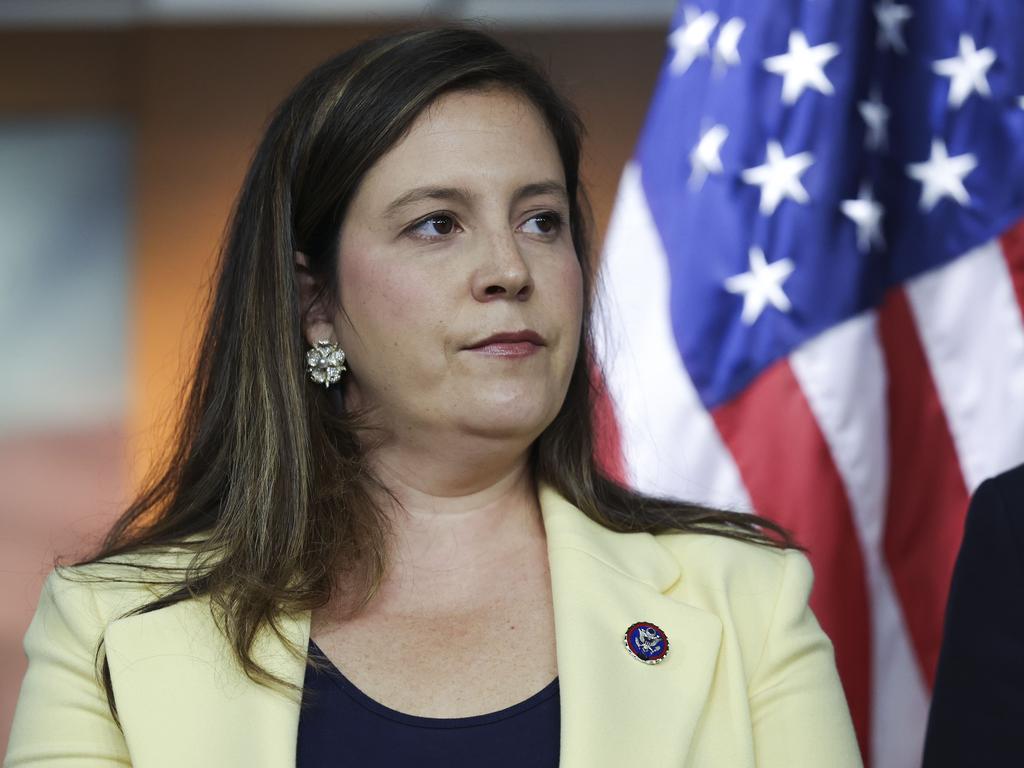Sarah Palin loses as Democrats pick up ‘shock’ victory in Alaska
The former governor’s defeat to a little-known Democrat in the Republican stronghold of Alaska boosts Democrats’ hopes for the midterm elections.

Sarah Palin’s surprise loss to a little-known Democrat in a key Congressional seat in the Republican stronghold of Alaska has buoyed Democrats’ hopes for the November midterm elections, as Joe Biden prepares to blast “MAGA Republicans” in a prime time address the nation.
In an vote conducted under Australian-style preferential voting rules for the first time, the former Alaska governor, who had been endorsed by Donald Trump, attracted 49 per cent of the vote after preferences, losing to Democrat Mary Peltola, 49, a former state legislator who campaigned on “fish, family, and freedoms”.
Betting markets had given Ms Palin, 58, who shot to fame as John McCain’s running mate in the 2008 presidential election a 75 per cent chance of winning Alaska’s sole House of Representatives seat, which had been left vacant after the death of Republican Don Young, who had held it for 49 years.
“Though we’re disappointed in this outcome, Alaskans know I’m the last one who’ll ever retreat. Instead, I’m going to reload,” Ms Palin said, calling the new voting system a “mistake”.
Ms Palin’s loss, revealed on Tuesday (Wednesday AEST), is the latest set back for Republicans, whose focus on high inflation and rising crime in the lead up to November has been overshadowed by Mr Trump’s legal problems, following an FBI raid on the former president’s home last month.
Mr Biden, who is due to address the nation at 8pm on Thursday (10am Friday AEST), has enjoyed a modestly rising approval rating throughout summer, according to most polls, after a long period of steadily declining since taking office in January 2021.
Polls and betting markets suggest Democrats have started to pull ahead of Republicans nationally ten weeks out from the 8th November elections for Congress, which will see Democrats defend slender majorities in both chambers.
Democrats put their improvement down to anger over the Supreme Court’s June decision to overturn Roe v Wade – which had provided a nationwide right to abortion – and their recent spate of legislation, including on modest gun control, infrastructure spending, measures to reduce prescription drug prices.
In the five ‘special elections’ for Congress since the court’s decision, Democrats have won a bigger share of the vote than they did in 2020, including last month in New York’s 19th district, a bellwether seat where Democrat congressman Pat Ryan ran overwhelmingly on abortion rights.

Republican senator Tom Cotton on Thursday slammed the Alaska vote - for the first time - as a “scam to rig elections”.
“Sixty per cent of Alaska voters voted for a Republican, but thanks to a convoluted process and ballot exhaustion — which disenfranchises voters — a Democrat ‘won’,” he tweeted soon after the result was announced.
Jerry McBeath, an emeritus political science professor at the University of Alaska, said “some confusion” about the new voting system contributed less to Ms Palin’s loss than her unpopularity.
“There’s a very strong anti-Palin sentiment here: people don’t like that she traded on her celebrity status, quit the governorship in 2009, and took strong positions on things, when she had been much more moderate in Alaska,” he told The Australian.

Sean Maguire, an Australian and a state political report for the Anchorage Daily News, said the Republicans hadn’t worked out how to campaign in a preferential voting system yet.
“They were just attacking each other so much, which is the opposite of what you need to do in ranked choice; you need to build alliances,” Mr Maguire, 34, told The Australian.
“The big question was how many supporters of Nick Begich would rank Palin second, and not enough did,” he explained, referring to the other Republican candidate, who won 29 per cent of the primary vote to Ms Palin’s 31 per cent.
Alaska, the largest by land area in the union, shifted to preferential voting in 2020, the second US state to do so after Maine.
Deb Otis, director of research at non-for-profit FairVote, said support for ranked choice voting, already used in 55 US states, cities and counties, was bipartisan and growing nationally.
“Republicans are embracing ranked choice voting because they can see it helps elect stronger consensus with more of a mandate,” she told The Australian.
Ms Palin will have a second chance at reviving her political career in November, when the Alaskan seat returns to the usual two-year electoral cycle.








To join the conversation, please log in. Don't have an account? Register
Join the conversation, you are commenting as Logout